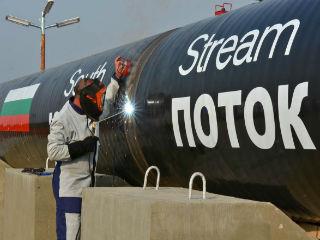Political disputes between Kiev and Moscow have seen EU supplies interrupted on two occasions in recent years; with Moscow justifying the Turkey decision by saying Ukraine is ‘unreliable’.

The EU should build new infrastructure to link up with a future Russia-Turkey pipeline or lose access to supplies.
The EU should build new infrastructure to
link up with a future Russia-Turkey pipeline or lose access to supplies.
That
was the clear message Russia‘s Gazprom head Alexei Miller had last week for the
EU energy commissioner, the Slovak Maroš Šefčovič.
The Commissioner, who was on his first visit
to Russia to meet Miller and Russia’s energy minister Alexander Novak, said
that he was ‘very surprised’.
He added later: ‘I believe we can find a better
solution. We don’t work like this… the trading system and trading habits –how
we do it today- are different’.
It is not known what the Russians reaction on
this was, may be a smile, thinking of the EU ‘habit’ of trade sanctions against
their country.
The Gazprom’s boss commented later: ‘they
have a couple of years at most to do this. In order to meet the deadline, the
work on building new pipelines in the EU must start immediately.
Otherwise, the
gas could end up in other markets’. About 80 percent of the EU’s gas imports
from Russia come via Ukraine.
Political disputes between Kiev and Moscow have
seen EU supplies interrupted on two occasions in recent years; with Moscow
justifying the Turkey decision by saying Ukraine is ‘unreliable’.
The dragging negotiations between the two
countries about the outstanding Ukrainian debt of billions for delivered gas
were undoubtedly also herewith considered by Moscow.
The announcement done by Miller was
Russia’s second surprise on energy supply. In December, Russia said it won’t
build the so-called South Stream pipeline via Bulgaria and Hungary to Italy in
favor of a new project with Turkey.
This
decision came after the European Commission ordered the Bulgarian government to
stop construction works of South Stream.
Both South Stream and ‘Turkish Stream’ have
strategic implications because they bypass Ukraine, which earns billions from
transit fees and which is on the edge of bankruptcy.
Will this increase eventually
the price tag of the unprecedented and unconditional support the EU gives to
the rulers in Kiev?







